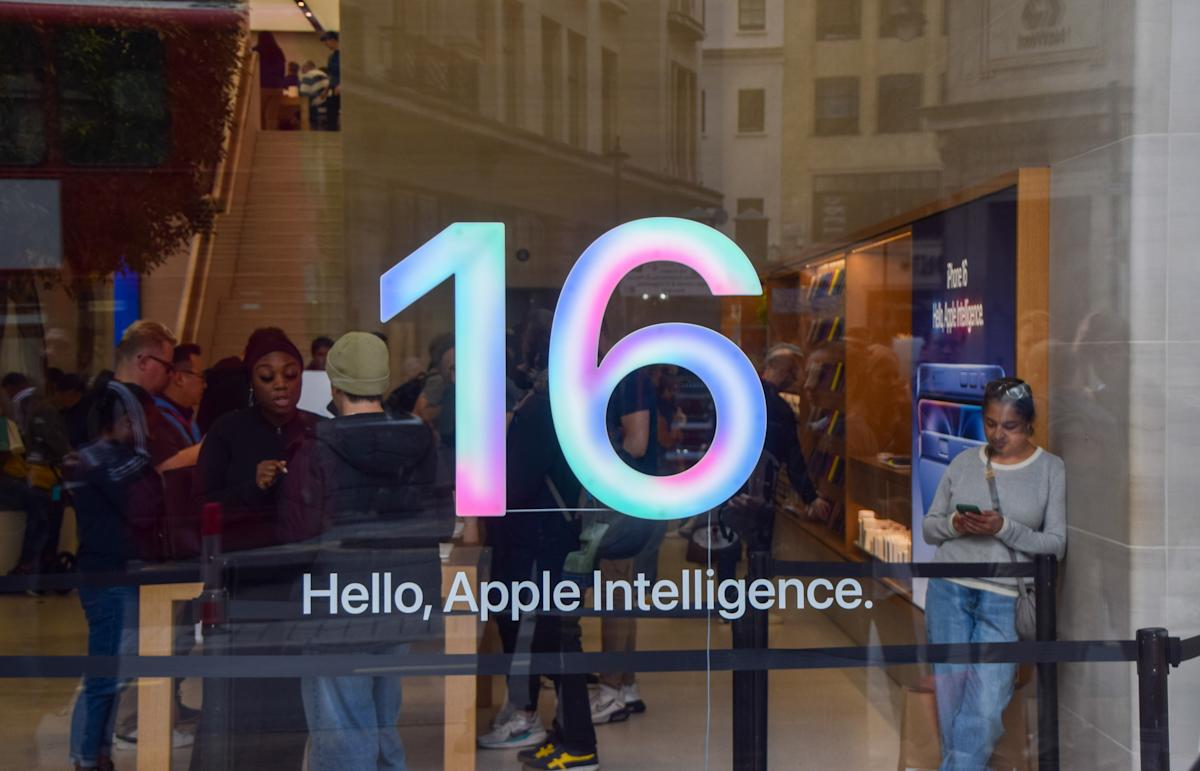Behind the Curtain: Apple's AI Ambitions Stumble in High-Stakes Tech Race
Technology
2025-03-12 15:05:59Content

Apple's ambitious foray into artificial intelligence appears to be stumbling out of the gate, with early signs suggesting the tech giant may face significant challenges in catching up to its competitors. The company's AI strategy seems hesitant and reactive, a stark contrast to its typically innovative approach to technology.
While rivals like Google and OpenAI have been making bold, headline-grabbing moves in generative AI, Apple has maintained a cautious stance that risks leaving them behind in this rapidly evolving technological landscape. The recent introduction of Apple Intelligence at WWDC, while promising, feels more like a tentative first step rather than a transformative leap forward.
Industry experts are pointing out that Apple's AI offerings currently lack the sophistication and depth of solutions from more aggressive players in the market. The company's traditionally closed ecosystem and privacy-first approach, while admirable, may be hampering its ability to develop cutting-edge AI technologies at the same pace as more open platforms.
Analysts predict it could take several quarters, if not years, for Apple to truly close the gap in AI capabilities. The company will need to invest heavily in research, talent acquisition, and a more aggressive development strategy to become a serious contender in the AI race.
For now, Apple finds itself in the unusual position of playing catch-up—a role that feels unfamiliar for a company that has historically been at the forefront of technological innovation. The next few years will be critical in determining whether Apple can reinvent its approach and reclaim its reputation as a technology leader.
Silicon Valley's AI Dilemma: Apple's Stumbling Path in the Artificial Intelligence Race
In the rapidly evolving landscape of technological innovation, Apple finds itself at a critical crossroads, struggling to maintain its reputation as a pioneering tech giant amid the artificial intelligence revolution that is reshaping the digital ecosystem.The High-Stakes Game of AI Supremacy Hangs in the Balance
The Technological Disconnect: Apple's AI Strategy Unraveled
Apple's approach to artificial intelligence has been characterized by a cautious and seemingly hesitant methodology that stands in stark contrast to the aggressive AI development strategies employed by its Silicon Valley counterparts. While companies like Google, Microsoft, and OpenAI have been making significant strides in generative AI technologies, Apple appears to be lagging behind, trapped in a conservative technological paradigm that may ultimately compromise its competitive positioning. The company's traditional strength in hardware design and user experience seems to be working against it in the AI domain. Unlike its competitors who have embraced bold, experimental approaches to machine learning and neural networks, Apple has maintained a more reserved stance, prioritizing privacy and user security over rapid technological advancement.The Competitive Landscape: A Rapidly Shifting Technological Ecosystem
The artificial intelligence landscape is experiencing unprecedented transformation, with breakthrough innovations emerging at an exponential rate. Major tech corporations are investing billions of dollars in research and development, creating sophisticated AI models that can generate human-like text, create complex visual content, and solve intricate computational problems. Apple's current AI strategy appears fragmented and lacks the cohesive vision demonstrated by its competitors. The company's incremental approach to AI integration, while historically successful in other technological domains, seems increasingly inadequate in the face of rapid machine learning advancements.Strategic Implications and Potential Consequences
The potential long-term ramifications of Apple's current AI strategy could be profound. By not aggressively pursuing cutting-edge artificial intelligence technologies, the company risks becoming marginalized in a technological ecosystem that is increasingly defined by intelligent, adaptive systems. Investors and technology analysts are growing increasingly concerned about Apple's ability to maintain its innovative edge. The company's traditionally robust ecosystem of products and services could potentially be undermined by its reluctance to fully embrace artificial intelligence as a transformative technological force.Navigating Uncertain Technological Terrain
Apple's path forward requires a fundamental reevaluation of its approach to artificial intelligence. The company must consider more aggressive investment in machine learning research, potentially through strategic acquisitions, enhanced internal development programs, and a more open approach to AI experimentation. The technology giant will need to balance its renowned commitment to user privacy with the need for technological innovation. This delicate equilibrium represents both a significant challenge and an opportunity for Apple to redefine its role in the emerging AI-driven technological landscape.The Human Factor: Beyond Technological Capabilities
While technological prowess is crucial, Apple's potential AI renaissance must also consider the human element. The company's historical strength has been its ability to create intuitive, user-friendly experiences that seamlessly integrate advanced technologies into everyday life. By leveraging its deep understanding of user experience design and its robust ecosystem of devices and services, Apple could potentially develop AI technologies that are not just technologically sophisticated, but also genuinely meaningful and transformative for users worldwide.RELATED NEWS
Technology

Battle of the Titans: Vivo X200 Ultra Challenges Samsung Galaxy S25 Ultra in Flagship Showdown
2025-04-07 10:28:00
Technology

Switch 2 Leak Drops Bombshell: Nintendo's Next-Gen Console Arrival Sooner Than Expected
2025-03-13 19:46:00
Technology

App Store Showdown: Industry Group Warns of Dangerous Legislative Threat
2025-05-06 20:13:21





